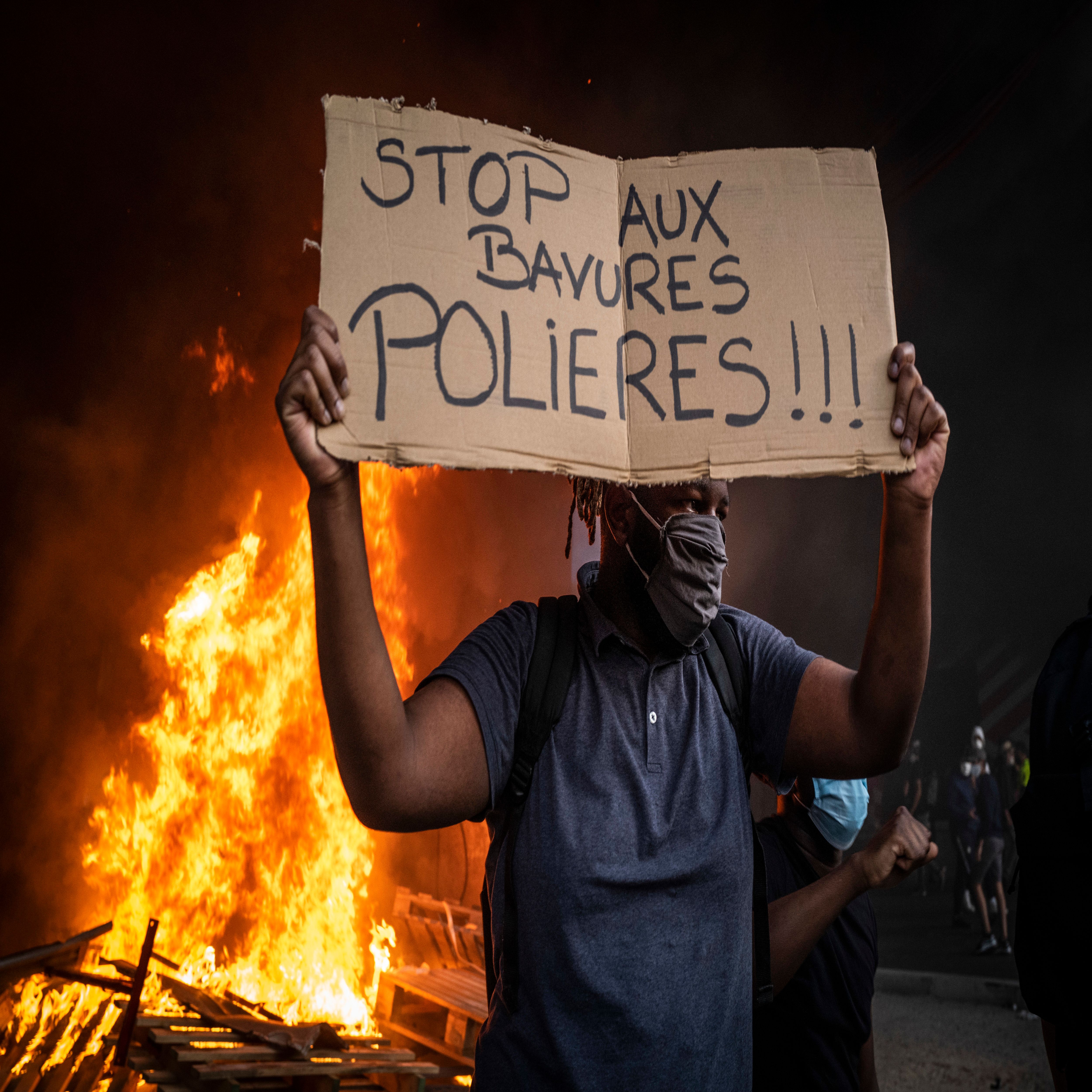News
June 04, 2020
French protests over racial injustice: The George Floyd protests in the United States have sparked solidarity demonstrations around the world, with people flocking to US embassies in Berlin, London and elsewhere to express their outrage. But they have also inspired other countries to reexamine racial justice within their own societies. In France, where street demonstrations are practically a national pastime, thousands of people have gathered in support of the family of Adama Traoré, a 24-year old black man who died in police custody back in 2016. At least 20,000 Parisians demonstrated Wednesday, despite coronavirus bans on public gatherings. Protesters adopted similar language to the Floyd protests, demanding accountability for the officers who violently pinned down Traoré during a dispute over an identity check, leading to his death. Renewed focus on this case, which has become a potent symbol of police brutality in France, comes as coronavirus lockdowns have recently stoked tensions between the police and the mostly-minority residents of Paris' banlieues (low-income suburbs).
Sudan's new defense minister walks into a firestorm: Sudan has sworn in a new defense minister, just days after Sudanese forces clashed with militias from neighboring Ethiopia, sparking a diplomatic standoff between the two states. The two countries have long been locked in a bitter border dispute that's given rise to sporadic bursts of violence. More than 1,700 Ethiopians live on Sudanese farmland, a source of tension that the two sides had hoped to settle as part of a border demarcation process to be completed in March 2021. But tensions have resurfaced during thorny negotiations over Ethiopia's planned construction of the Grand Ethiopian Renaissance Dam. The hydropower project, which would draw waters from the Nile, is largely opposed by both Egypt and Sudan, which are downstream from Addis Ababa.
The Pentagon checks Trump: President Trump has repeatedly threatened to deploy the US military to quell unrest in American cities, after 10-days of both peaceful anti-racism protests and some riots. In recent days, however, pushback against the president's proposal has come from a powerful source: the Pentagon itself. After Trump floated using the Insurrection Act, which allows the US president to use active-duty troops domestically, Secretary of Defense Mark Esper distanced himself from his boss, saying that such a move would be misguided as anything but a far-off last resort – a position also supported by the current chairman of the Joint Chiefs of Staff and many of the nation's governors. Meanwhile, Esper's predecessor, retired general Jim Mattis, who has refrained from weighing in on politics since leaving the Pentagon 18-months ago, penned a searing op-ed Wednesday, where he warned that calling in US troops would cause "chaos" and accused President Trump of trying "to divide us." The ensuing debate over the army's proper role in American politics has exposed a growing rift between the White House and the Pentagon, as an increasing number of armed forces personnel accuse the president of politicizing the military.
More For You
- YouTube
At the 62nd Munich Security Conference in Munich, GZERO’s Tony Maciulis spoke with Benedikt Franke, Vice Chairman and CEO of the Munich Security Conference, to discuss whether the post-1945 global order is under strain or already unraveling.
Most Popular
- YouTube
Zelensky agrees: elections matter #PUPPETREGIME
As more small businesses move sales, payments, and customer relationships online, they unlock new opportunities, but they also become easier targets for cyber-criminals and other threat actors.
TOKYO, JAPAN - FEBRUARY 8: Japan's Prime Minister Sanae Takaichi, leader of the ruling Liberal Democratic Party (LDP), places a red paper rose on the name of an elected candidate at the LDP headquarters on general election day on February 08, 2026 in Tokyo, Japan. Voters across the country headed to polls today as Japan's Lower House election was held.
Photo by Kim Kyung-Hoon - Pool/Getty Images
When Japanese Prime Minister Sanae Takaichi called snap elections last month, it was a big gamble. Holding a winter election just four months into her tenure with no real policy record to run on?
© 2025 GZERO Media. All Rights Reserved | A Eurasia Group media company.
